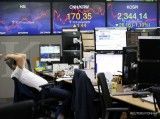JAKARTA. The inflation rate in January 2017 hit 0.97%, exceeding the projections of BI (the Central Bank) and some economists at the range of 0.6%-0.7%.
This is higher than the inflation rate in January 2015 and January 2016. The inflation rate in January 2017 is even higher than the inflation rates during Ramadhan and Iedul Fitri festival in 2015 and 2016 that stood at 0,66% and 0,69%, respectively.
With the monthly inflation rate of 0.97%, the annual inflation rate in January 2017 stood at 3.49%. However, the annual inflation rate was still lower than January 2015 and January 2016 inflation rates that stood at 6,96% and 4,14%, respectively. Among the 82 surveyed cities, Pontianak and Manokwari are the cities with the highest and lowest inflation rates at 1,82% and 0,09%, respectively.
According to Head of BPS (National Statistic Agency) Suhariyanto, the inflation rate in January 2017 was mostly contributed by the increases in administration fees of motor vehicles registration (STNK), electricity tariff for the segment of 900 volt ampere (VA), fuel price, and cigarette price.
The increases in STNK’s administration fees, electricity tariff, and oil price contributed to 0.23%, 0.19%, and 0.08% of inflation rate in January 2017. This has increased the inflation rate of the administered prices to 2.57%. The inflation rate of the administered prices has increased by 0.21% compared with 2016.
The inflation rate of volatile food in January 2017 is 0.67%. The inflation rate was mainly contributed by the increases in the prices of fresh fish and bird’s eye chili, while the prices of red chili and shallot dropped. “In other words, in general the price of food material are controllable,” he said.
According to Suhariyanto, electricity tariff is a major contributor to the inflation rate. Aside of the major contribution, BPS recorded that 41% of households subscribe post-paid electricity, while other 59% subscribe post-paid electricity.
That would lead the increase in electricity tariff in the last month to affect to inflation rate in January and February 2017. Let alone, the electricity tariff will be increased in March and May 2017.
Therefore, Suhariyanto predicts, the inflation rate in this year would be higher than the last year that stood at the level of 3,02% (yoy). This would mainly be driven by the increases in the administered prices) of goods and services. However, the inflation rate would remain stay at 4% of target inflation plus/minus 1%, as long as the government and the BI can maintain the food price.
Coordinating Minister of Economic Affairs Darmin Nasution said, the inflation pressure was mainly contributed by the administered prices. Nevertheless, the inflation in the transportation sector was caused by the increase in the price of non-subsidized fuel, “Such as Pertamax dan Pertalite," he said.
Economist at Maybank Indonesia Juniman assessed that the inflation rate in February 2017 may be less than 0.5%. Usually, the inflation rate in February is lower than in January. “We predict that inflation rate in February will be around 0.2%-0.5%,” he said.
In order to maintain the inflation rate, he expects that the government to adjust the price when the inflation rate is low, such as during the harvest in March and April or after Iedul Fitri festival. Therefore, the impacts of the increases in administered prices can be controlled. (Muhammad Farid/Translator)
/2017/01/23/1917990186p.jpg)









